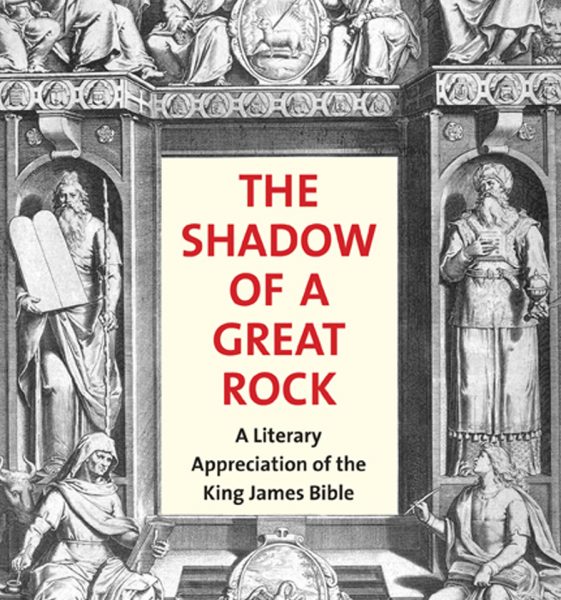Reading the King James Bible with Harold Bloom
Read an excerpt from The Shadow of a Great Rock
The recent furor over a newly discovered Coptic text in which Jesus appears to refer to his own wife has put the Bible and Biblical interpretation back in the news. Scholars, skeptics, and believers are weighing on how to understand this and the Biblical account of Jesus of Nazareth’s life.
 For many however, the Christian Bible, and particularly the King James Version, remains untouched by such controversy, standing primarily as a literary achievement. Harold Bloom takes this approach in The Shadow of a Great Rock: A Literary Appreciation of the King James Bible, where he embarks on the momentous task of looking over King James Bible through a literary lens. On this point, Bloom finds an ally in C.S. Lewis, at least as it pertains to the Psalms, who agrees: “They must be read as poems if they are to be understood; no less than French must be read as French or English as English. Otherwise we shall miss what is in them and think we see what is not.”
For many however, the Christian Bible, and particularly the King James Version, remains untouched by such controversy, standing primarily as a literary achievement. Harold Bloom takes this approach in The Shadow of a Great Rock: A Literary Appreciation of the King James Bible, where he embarks on the momentous task of looking over King James Bible through a literary lens. On this point, Bloom finds an ally in C.S. Lewis, at least as it pertains to the Psalms, who agrees: “They must be read as poems if they are to be understood; no less than French must be read as French or English as English. Otherwise we shall miss what is in them and think we see what is not.”
Bloom’s belief in the power of aesthetics and the value of literature has striking similarities to the religious faith found in the Biblical text. He will allude to this, using religious metaphors to describe his devotion to the “word.” He describes himself and his cohorts as “secularists of the spirit who believed in the resurrectionist powers of the high arts.” That will be an apt description and a perfect example of how Bloom is interacting with scripture and scriptural ideas at large in his telling use of the word “resurrectionist.” His figurative language relies on the Bible, much like the King James Bible itself relies on a hodge-podge of sources, from earlier English translations by Coverdale and Tyndale to the texts in their original language. In a sly reference to the way in which God refers to himself in Exodus, Bloom concludes, “I too am what I am.” The Biblical language will be a rich well of metaphors for Bloom to describe his experience.
Bloom takes each text on its own accord and lets it speak its own language. Through his eyes we see the text in its singular power to move as a work of art, as we would behold a painting or be touched by poetry. In that way he opens up the King James Bible for every reader. The prophet Jeremiah reminds him of Shakespeare’s Richard II. The gospel writer Mark is akin to Edgar Allan Poe, “a bad stylist who yet fascinates.” Reading with Bloom has the benefit of his immense passion and depth of knowledge, literary and philosophical, allowing him to draw from a vast array of references from fellow literary critics like Northrop Frye to Baruch Spinoza.
He allows himself to be moved by the passages, to have them strike him as beautiful or shameful, and such an invested reading should be model for anyone who loves art or scripture. The book of Ecclesiastes, as it dwells on the withering and vanity of our living hours, will speak deeply to him. “I brood, at eighty and counting, daily on these verses, as my fingers tremble, my legs bow themselves, my teeth cease, my eyes darken, my ears shit, bird-song grows fainter, heights increase my fear of falling and even walking finds fears in the way.” The prophets too, will affect him. “Both prophets are hurtful;” he writes of Jeremiah and Hosea, “that is their power and their authority, though this gift of wounding makes me wince and sometimes serves to drive me away.”
According to T.S. Eliot, “The fact that men of letters now discuss it as ‘literature’ probably indicates the end of its ‘literary’ influence.” If we believe Bloom, Eliot proves to be wrong on that score. Bloom pours layers of analysis into The Shadow of a Great Rock, and will find much to value in King James Bible’s pages.




